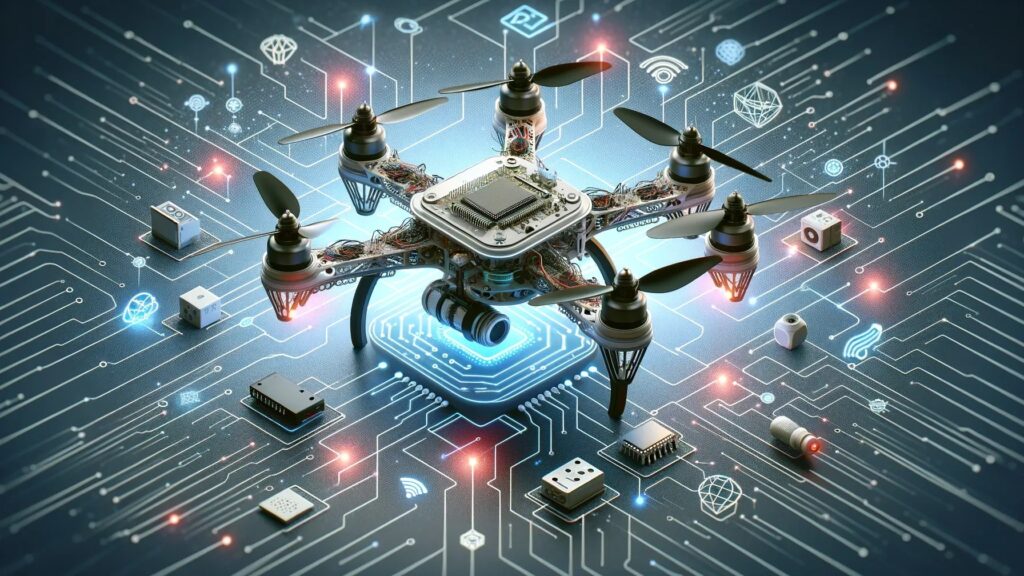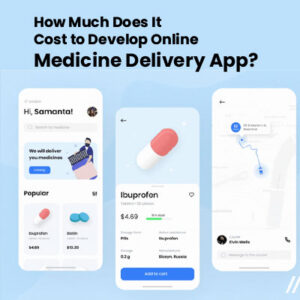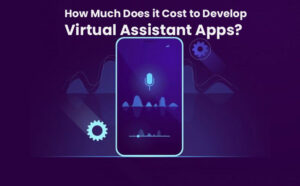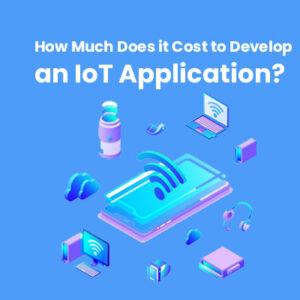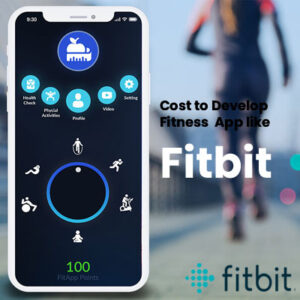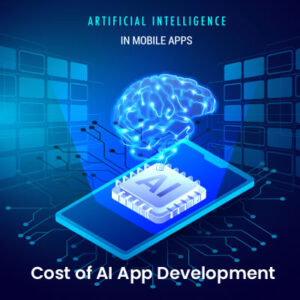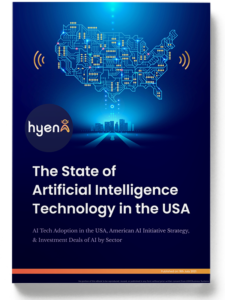AI Drone Technology – Understanding the Dynamics and Business Imperatives
AI Drone Technology – Understanding the Dynamics and Business Imperatives
Artificial intelligence (AI) has elevated drone technology from being a tech-gadget for hobbyists to a crucial business tool. AI, using the power of machine learning and real-time data processing, has empowered drones to perform complex tasks autonomously. This capability enables businesses to handle their operations smarter and more efficiently.
From agriculture to logistics, organizations have already started adopting AI drones to predict trends, optimize operations, and make informed decisions swiftly. So, adopting AI drones has become imperative for businesses aiming to maintain a competitive edge.
This article aims to provide a thorough exploration of AI drone technology, focusing on its various applications and strategic benefits. We would also discuss the challenges that businesses may face while integrating AI drones into their workflows.
An Overview of AI Drone Technology
AI-equipped drones rely on advanced features to process data and make decisions in real-time, without requiring human control. Let’s take a quick look at features that set AI-powered drones apart from traditional drones:
- AI drones can analyze and respond to real-time data. So, they can do complex tasks on their own.
- AI-powered drones continuously learn from data, enhancing their performance and efficiency over time as they adapt to new information and patterns.
- Using predictive capabilities, the AI systems can detect and repair any issues within the drone, reducing downtime and ensuring its longevity.
- With high-resolution cameras and sensors equipped, AI drones can capture and analyze detailed visual information. This enables them to extract valuable real-time information, derive insights, and make informed decisions.
- AI drones are capable of processing data instantaneously, allowing for immediate analysis and action. This feature is particularly crucial for applications that require quick responses, such as emergency management and security monitoring.
These advanced and intelligent functionalities are making AI drones incredibly powerful, providing businesses with the ability to gather detailed insights, increase operational efficiency, and reduce costs.
Applications of AI Drone Technology in Various Industries
-
AI Drones in Agriculture
In the agricultural sector, AI drones are transforming how farmers manage their crops and livestock. Using these drones, farmers can monitor soil conditions, plant health, and crop growth. The detailed aerial images and data analysis taken by the drones help farmers detect issues such as pest infestations and irrigation needs. This targeted approach ensures proper resource use and improves crop yields.
Additionally, AI-powered drones monitor livestock by tracking their movements and health, providing data that enhances animal welfare and productivity.
-
AI Drones for Construction
AI drones in the construction industry have become crucial for tasks like site surveying, progress tracking, and safety inspections. They can accurately chart the construction site to create 3D models and topographical maps. This helps reduce the time and cost compared to traditional surveying methods.
Further, AI drones also monitor construction progress in real-time, ensuring projects stay on schedule. They enhance safety by inspecting hazardous areas, identifying potential risks, and ensuring compliance with safety regulations.
-
Logistics and Delivery
The use of AI Drones in logistics and delivery is increasing year over year. AI drones can streamline operations and boost efficiency. They are used for package delivery, providing a faster and more flexible alternative to traditional methods.
AI drones can deliver packages to remote or difficult-to-reach locations. In warehouses, AI drones for logistics can assist with inventory management by performing regular stock checks and updating inventory records in real-time. This reduces the risk of human error and increases accuracy.
-
Oil and Gas
AI drone technology is a powerful asset for the oil and gas industry. From pipeline inspections and offshore platform monitoring to environmental assessments, the role of AI drones is incredible.AI drones inspect pipelines for leaks and damage, providing detailed imagery and data. So, it becomes easy to identify issues early and prevent costly repairs or environmental harm. They also monitor offshore platforms, capturing real-time data on structural integrity and operational conditions. Additionally, AI drones conduct environmental assessments by monitoring air and water quality and assessing the impact of oil and gas operations on the environment.
-
Security and Surveillance
The role of AI drones in enhancing security and surveillance is beyond belief. They are used in public safety to monitor large events, identify potential threats, and respond to emergencies swiftly. In border control, AI-equipped drones provide aerial surveillance to detect illegal crossings and monitor border activities. They also enhance infrastructure security by inspecting critical facilities such as power plants, dams, and bridges.
-
Environmental Monitoring
AI drones for environmental monitoring are aiding in wildlife tracking, forest management, and disaster response. They track wildlife populations, monitor habitats, and collect data on animal behaviour and health.
In forest management, AI drones assess forest health, monitor tree growth, and detect signs of disease or pest infestations. They also play a vital role in disaster response, providing real-time imagery and data during natural disasters such as floods, hurricanes, and wildfires. This information is crucial for coordinating rescue efforts, assessing damage, and planning recovery operations.
Top Benefits of AI Drones for Businesses
For businesses adopting AI-equipped drone technology, it is important to understand the benefits involved. In this section, let’s explore different areas, where AI drones can make a difference and offer a competitive edge.
-
Cost Efficiency and ROI
AI drones can decrease operational expenses by automating tasks that traditionally require significant manual labor, like site surveys and inventory audits. This automation increases productivity and optimizes resource use, leading to a higher return on investment (ROI). For example, in the agricultural sector, drones with artificial intelligence can quickly cover vast areas for crop monitoring, cutting down the need for extensive human labor and thereby lowering costs.
-
Enhanced Data Collection and Analytics
With their advanced sensors and cameras, AI drones are capable of gathering large volumes of data quickly and accurately. This data is then processed in real-time to provide actionable insights. In agriculture, for example, drones can assess soil quality, monitor plant health, and predict weather impacts, helping farmers make better-informed decisions. In logistics, drones assist in tracking inventory and streamlining delivery routes, leading to more efficient operations.
-
Improved Safety and Risk Management
AI drones enhance safety by performing tasks in dangerous environments, thus minimizing human risk. In construction, drones can inspect tall structures or confined spaces, reducing the need for workers to be exposed to these hazardous areas. Similarly, in the oil and gas sector, drones can monitor pipelines and offshore platforms, ensuring safety standards without placing personnel in high-risk situations.
-
Quick and Efficient Service Delivery
Businesses using AI-equipped drones can deliver services more quickly and efficiently, improving customer satisfaction and loyalty. For example, logistics companies employing AI drones for deliveries can offer faster and more flexible service compared to those relying solely on traditional methods. Likely, in agriculture, precision farming enabled by drones can lead to better crop yields and quality, giving farmers an edge in the market. Staying at the forefront of AI drone technology allows businesses to stand out and attract more customers.
Challenges and Limitations with AI Drone Technology
While AI drone technology provides several benefits, it also presents a few challenges and limitations. It is important to understand these issues to effectively manage and overcome them.
-
Regulatory and Legal Considerations
AI-equipped drone technology operates under complex regulations and legal constraints. These rules are subject to change and vary widely across different regions, making compliance a difficult task. Some important regulations for AI drone technology businesses have to comply with are privacy laws, airspace regulations, safety standards, and privacy laws to avoid any legal issues and operations interruptions.
-
Technical Challenges
Despite having advanced capabilities, AI drones have several technical limitations. Limited battery life often restricts the duration and range of drone missions. Moreover, harsh weather conditions and extreme temperatures can impact drone performance and reliability. Regular updates and maintenance are necessary to address any software issues or malfunctions.
-
Data Security and Privacy
AI drones collect relatively extensive data, which can raise significant concerns about privacy and data security. So, ensuring secure transmission and data storage is important to prevent authorized access. Businesses should implement strong cybersecurity measures and comply with data protection laws to protect sensitive information.
-
Public Perception and Acceptance
Public concerns for noise pollution, privacy, and potential misuse can delay the adoption of AI drones. These concerns may lead to resistance from regulatory authorities and communities. So, businesses should engage in open communication, highlight the benefits of AI drone technology, and address public worries to gain wider acceptance.
Future Trends and Developments In AI Drone Technology
As AI drones continue to progress, several emerging trends and advancements can shape the future of various industries. Below, let’s explore some of the potential developments and their impact on businesses.
Future drones will feature more sophisticated algorithms, which will allow them to perform complex tasks with precision and higher autonomy. Improved machine learning may enable drones to learn from past experiences, enhancing their performance and adaptability in different environments.
The integration of AI drones with the Internet of Things (IoT) and other emerging technologies will further expand their functionality. Connected drones will communicate with other devices and systems, creating a seamless information flow and efficient operations. For example, in smart agriculture, drones collaborate with IoT-enabled sensors to monitor crop conditions and automate irrigation systems based on real-time data.
Emergency use cases are another area where AI-equipped drones can be quite helpful. Urban air mobility is one such area where drones can be used for passenger transport, revolutionizing urban transportation systems. Medical deliveries using drones are also gaining traction, particularly in remote areas where traditional delivery methods are impractical.
Moreover, beyond visual line of sight (BVLOS) operations are becoming more feasible. This allows the drones to cover longer distances and undertake more complex missions without being in the operator’s line of sight.
Conclusion
Adopting AI drone technology presents businesses with a range of opportunities to enhance efficiency, reduce costs, and gain competitive edge. However, successful integration requires careful planning and consideration. By assessing the needs and partnering with reliable partners, businesses can utilize the capabilities of AI drones to position themselves at the forefront of their respective fields.
Get In Touch For more information and assistance in AI development
